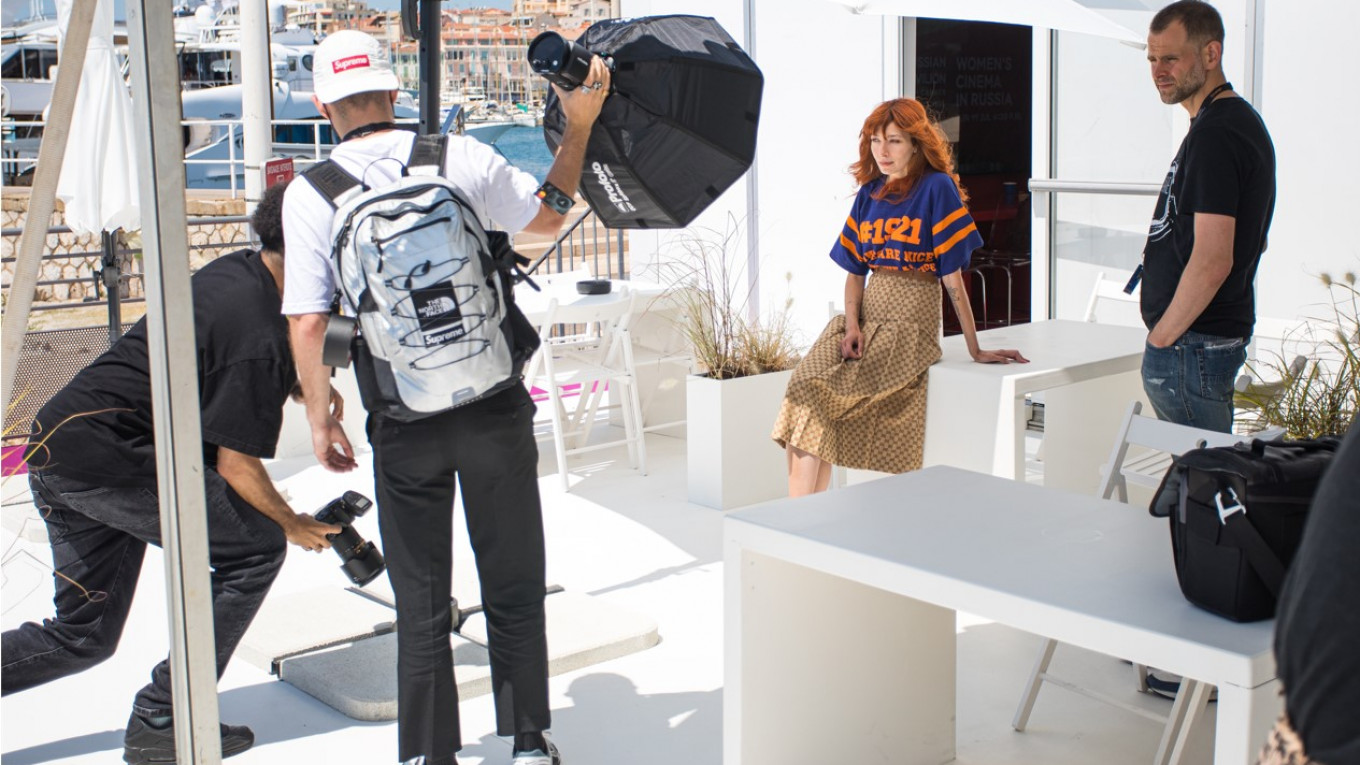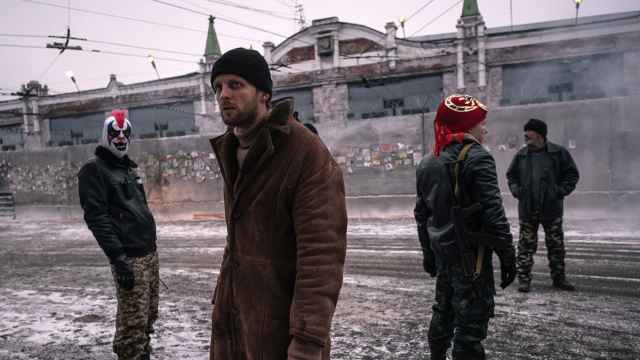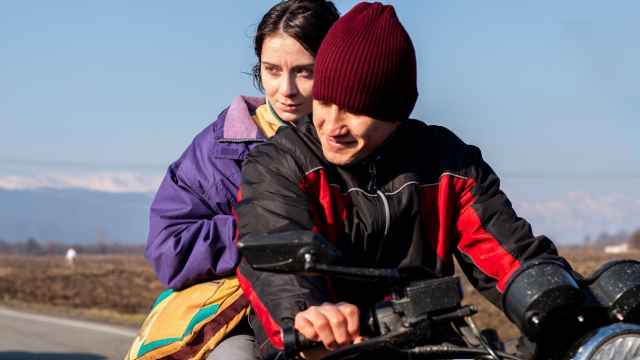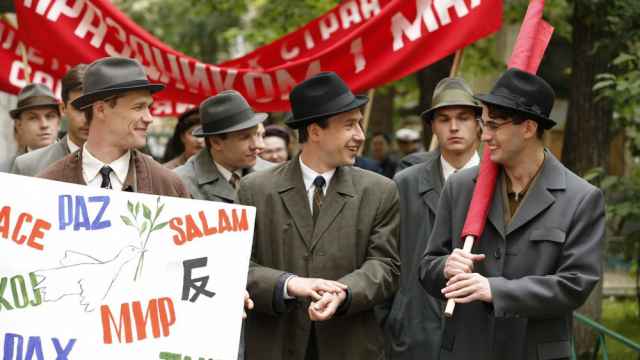The film of the rising star of Russian cinema Kira Kovalenko "Unclenching the Firsts" won the Grand Prix in the section "En Certain Regard" of the 74th Cannes Film festival.
Kovalenko's success did not come as a surprise to the film industry and audiences at the Cannes Film Festival. The film was produced by Alexander Rodnyansky, the most prominent and successful producer in Russia today.
If Rodnyansky takes a director under his wing, the newcomer is sure to have a great future. Another Rodnyansky protégé – Kartemir Balagov, who presented his two feature films "Closeness" and "Beanpole" in Cannes — won awards at the festival and is now working on a big HBO-project called "Last of Us."
Both Balagov and Kovalenko are graduates of a filmmaking workshop organized by the rector of the Kabardino-Balkarian State University in Nalchik, Barasbi Karamurzov, and the Russian director Aleksandr Sokurov. Kovalenko made her directorial debut in 2016 with "Sofichka," which premiered at the Tallinn Black Nights Film Festival. "Unclenching the Fists" is her second feature film.
The film takes place in the small mining town of Mizur, located in the Caucasus mountain region of North Ossetia. Zaur lives with his son and daughter and cannot seem to make any distinction between parental care and overprotectiveness. His eldest son managed to escape to another city under the pretext of looking for a job. The youngest, Dakko, wanders aimlessly around the neighborhood and hangs onto his sister, who has taken the place of their deceased mother. Ada, Zaur’s daughter, knows that she needs to run away from them. Trapped between the annoying attention of her brother and the "iron embrace" of her father's clenched fists, Ada wants to finally free herself from the obsessive love of both men and start living independently. But it’s not easy.
Kira Kovalenko seems to like Italian Neorealism: the film title is a reference to Marco Bellocchio's debut – "Fists in the Pocket" (1965) that also tells the story of a family living at close quarters. Balagov calls the projects of the graduates of the Sokurov workshop "Caucasian Neorealism."
The original script was written by Kovalenko in Russian, but the film’s protagonists speak Ossetian. Most of the roles are played by non-professional actors. Only the roles of Ada is performed by a drama student Milana Aguzarova and her father is portrayed by Alik Karaev, a well-known stage actor in North Ossetia.
We spoke to Kira Kovalenko after the film premiered at the Cannes film festival but before the prizes were announced.
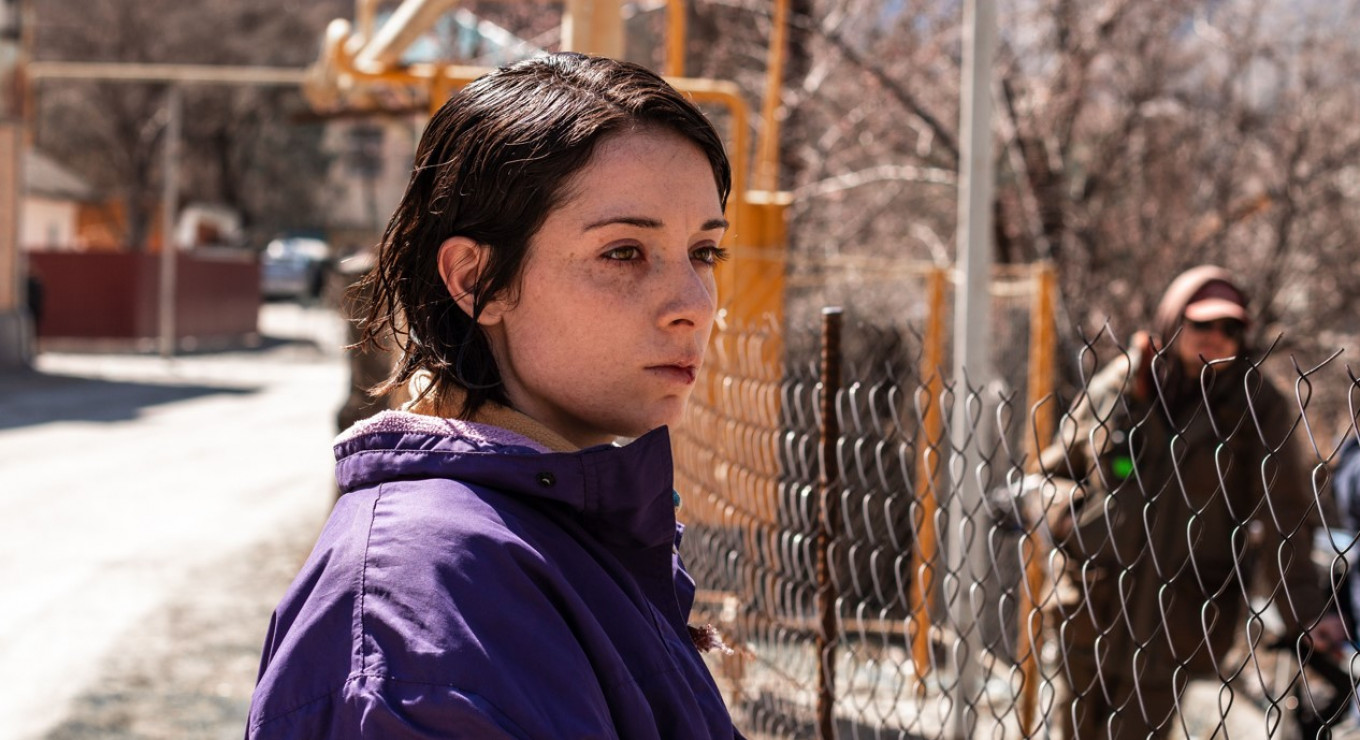
A woman and her survival in a special environment — is this the key theme of your film?
My initial script was about three brothers, so my story could be about either a woman or a man. It’s true that the plot reflects the situation of women in the North Caucasus, but that was not my focus. It's just fiction with a woman at the center, but it could be a man. The initial story was inspired by William Faulkner's “Intruder in the Dust” — there was a line in it that went something like “while some people can endure slavery, no one can stand freedom.” I have been reflecting on that for a long time.
Why did you replace three brothers with a sister? How different would the fate of a man be?
I think the life of a man would be equally difficult. He would not be free from the conventions of the environment; he’d also struggle to survive. After I rewrote the script and asked Alexander Rodnyansky for support, he just said, "Let's make this movie." I think he liked the fact that on the big screen I show something familiar – an eternal struggle in an ever-changing world – from a new point of view in a region that has not yet been discovered and that is part of my personal experience. I was born in the Caucasus. It sustains me.
All of life in the North Caucasus seems connected with the theme of "clenched fists" to some extent. Life seems to be very patriarchal, with many social conflicts...
It's partly true. From early childhood, we are fed information about wars, terrorist attacks and injuries. It's hard to ignore this. But in my film, I attempted to answer the question of whether it’s possible to be cured of this. I wanted to show the Caucasus from a different side: soft, translucent, gentle — the way I know and love it.
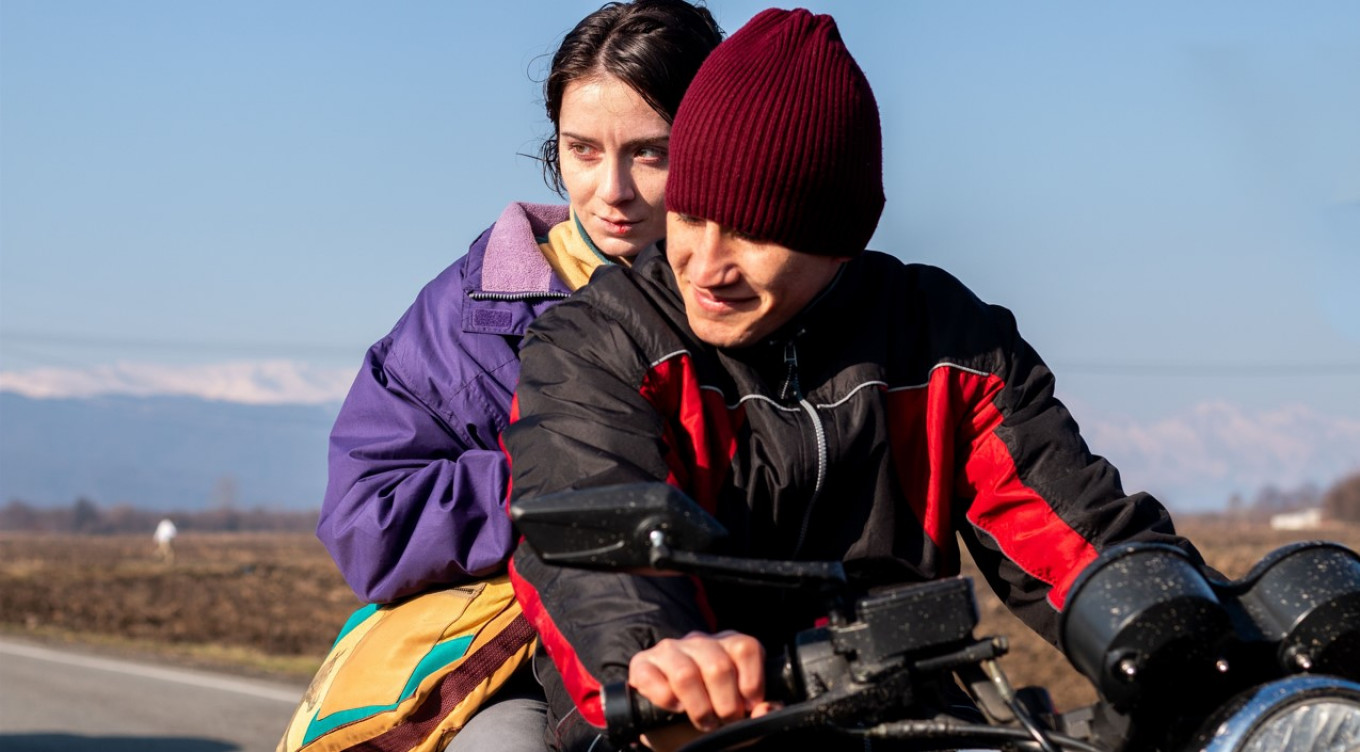
How do you think Russian viewers will react to the film?
I hope that the film will be released in Russia, although I don’t know how the audience will react to it. During the funding phase, I often heard remarks like "Who will be interested in a film in the Ossetian language?" But I believe that an artist should always create works on topics that are close to him. I really wanted to share my private experience.
I've noticed that male directors seem to prefer politics and socially critical stories, while female directors focus on personal relationships...
This doesn’t mean that I’m not interested in politics or social issues. It’s just that I don’t feel competent to tell those stories on the big screen. I am primarily interested in a person, his life, character traits, relationships.
Was there love in your protagonists' relationship?
They have way too much love. That’s the sources of all their drama and conflict. I think that excess love led my protagonists to violence. The problem with these people is that none of them know how to talk to each other. They cannot explain their feelings or express emotions. It's probably the specificity of the region, of our families, where parents do not know how to talk to children and children can't understand how to behave with their parents. When my non-professional actors rehearsed, they all wanted to talk, to share their feelings. When I told their parents that their children were very talented, the parents were surprised. They see their children every day, but they never really look closely at them.
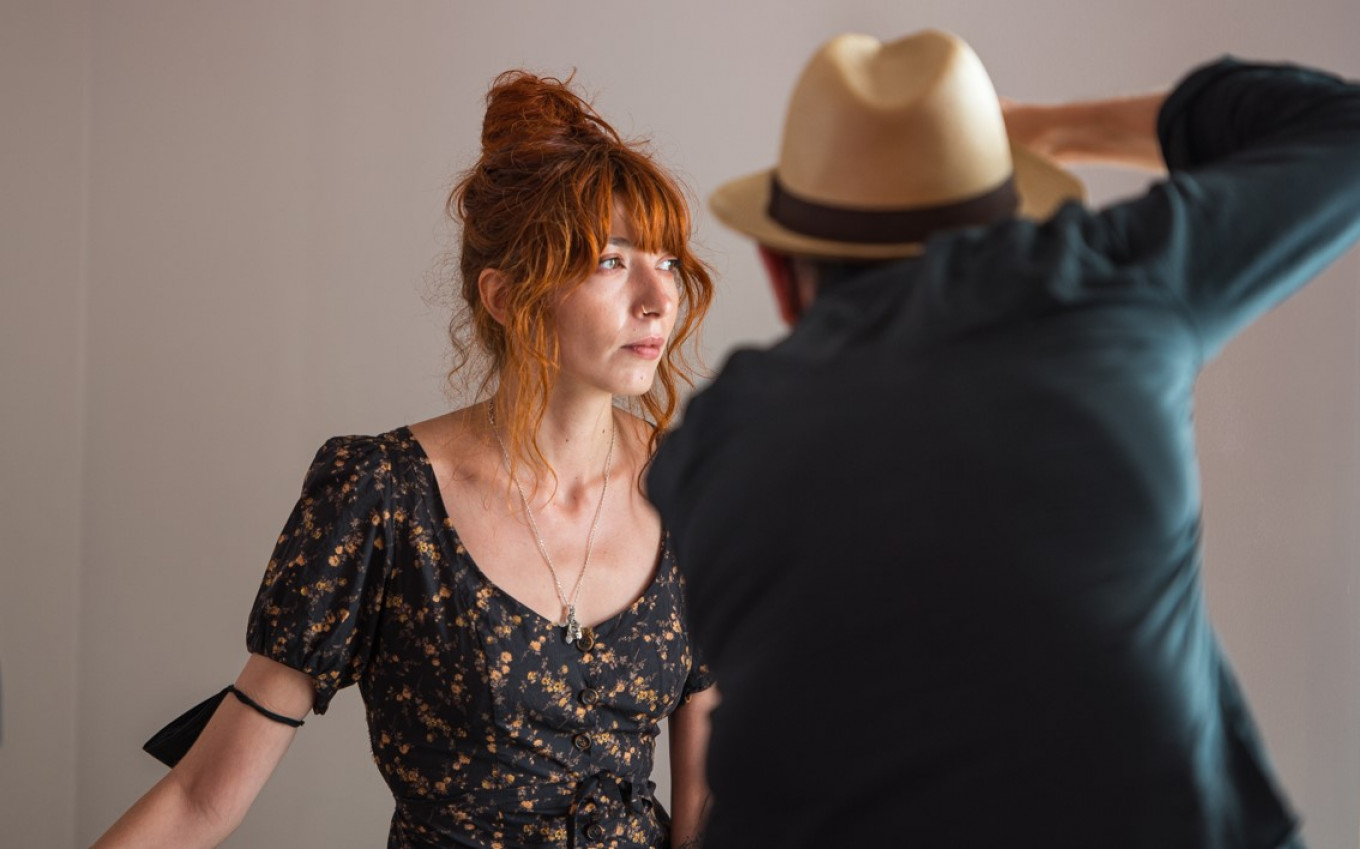
You often say that Sokurov gave you this profession. Can you elaborate on that: What exactly did he teach you?
I attended his workshop by chance. I had no interest in becoming a director. But once I joined, everything changed for me. He taught me to love literature, to read it, observing characters and analyzing details. Literature contains everything… Sokurov never wanted us to repeat his style or even watch his films. He wanted us to be different and to have our own special voice in cinema. For me, studying under Sokurov was like a process of awakening.
And if you win?
I would feel very much appreciated for my work in a team, not for winning an award...
***
By the time the prizes were announced, Kovalenko had already left the festival. Alexander Rodnyansky accepted for her. “Having worked with Kira for over three years, I know what she would say now. Kira would thank her film crew, her teacher Alexander Sokurov and, of course, the festival jury for their appreciation of her film."
A Message from The Moscow Times:
Dear readers,
We are facing unprecedented challenges. Russia's Prosecutor General's Office has designated The Moscow Times as an "undesirable" organization, criminalizing our work and putting our staff at risk of prosecution. This follows our earlier unjust labeling as a "foreign agent."
These actions are direct attempts to silence independent journalism in Russia. The authorities claim our work "discredits the decisions of the Russian leadership." We see things differently: we strive to provide accurate, unbiased reporting on Russia.
We, the journalists of The Moscow Times, refuse to be silenced. But to continue our work, we need your help.
Your support, no matter how small, makes a world of difference. If you can, please support us monthly starting from just $2. It's quick to set up, and every contribution makes a significant impact.
By supporting The Moscow Times, you're defending open, independent journalism in the face of repression. Thank you for standing with us.
Remind me later.



